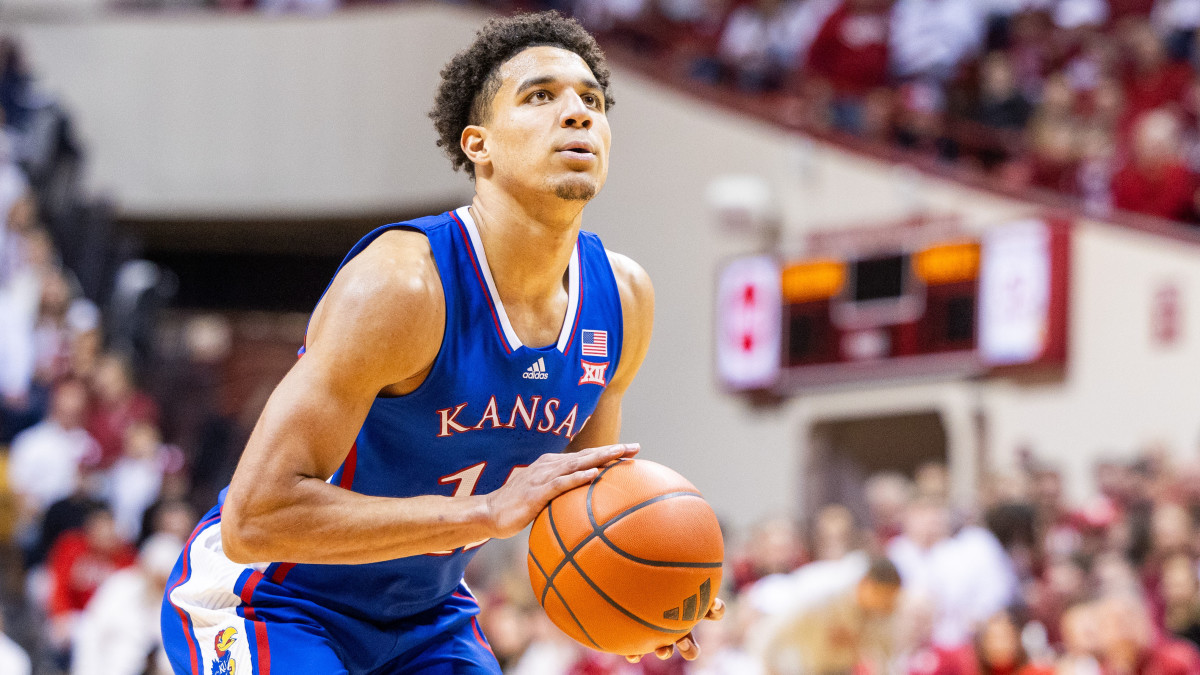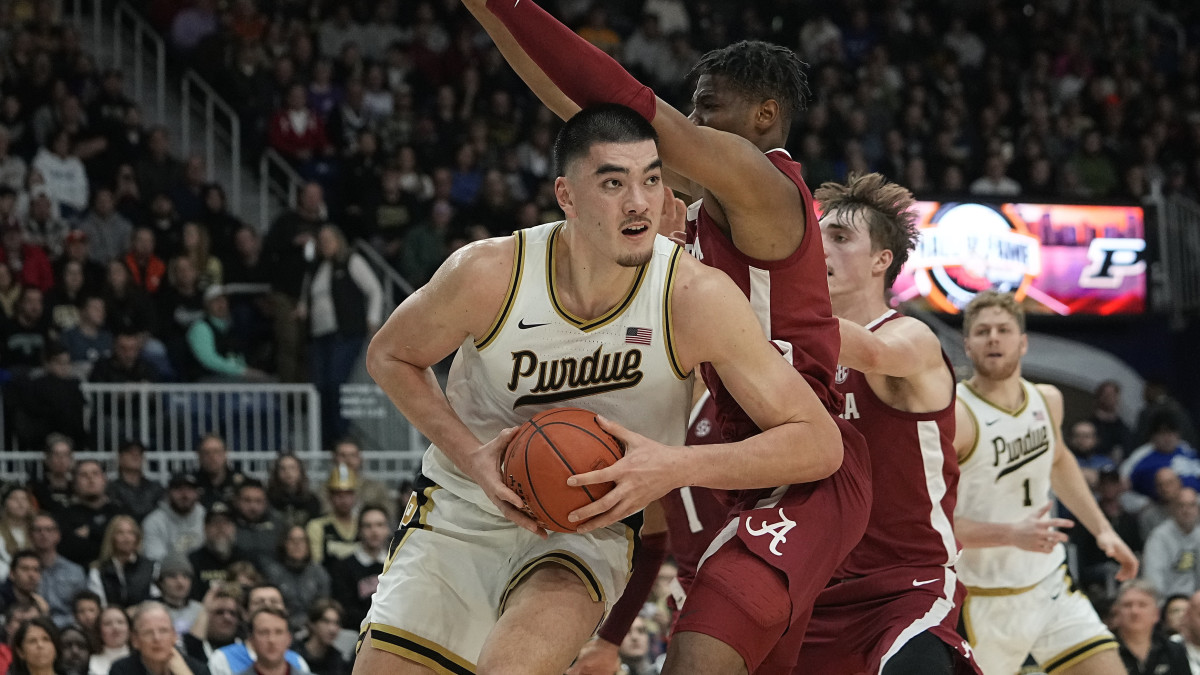Taking Stock of the Men’s College Basketball All-American Race

Men’s college basketball’s nonconference slate is almost entirely behind us, with leagues pivoting to the heart of conference play after the sport’s brief pause around Christmas. From the loaded Maui Invitational to huge December matchups on neutral floors, the season has already produced tons of high-profile showdowns, allowing new stars to emerge. While it’s early to be speculating about the sport’s awards season, the pivot from nonconference to league play is a good opportunity to take stock of the All-American race. If the season ended today, here’s how Sports Illustrated’s ballot would look:
First Team:
RJ Davis, North Carolina
Ending the marriage between Davis and Caleb Love in the North Carolina backcourt has seemed to benefit both parties. Love is having a resurgent season and helping lead the way for an elite Arizona team, while Davis has carried North Carolina back into contention after a rough 2022-23 for the Tar Heels. Davis has pinballed back and forth between playing on and off the ball during his Carolina career, but has found his stride this year playing in a hybrid role with pass-first freshman Elliot Cadeau also in the backcourt mix. He has scored 23 or more points in seven straight games (all against high-major opponents) and is on track to finish among the nation’s leading scorers this season.

Kevin McCullar Jr., Kansas
McCullar’s return to school for a fifth season was overshadowed this offseason by Kansas adding potential All-American Hunter Dickinson in the transfer portal, but the veteran wing has exploded in his second year playing for Bill Self. He has improved in essentially every aspect of his game, finally emerging into a consistent shotmaker from the outside while also blossoming from glue guy to offensive focal point. He’s averaging nearly 21 points, seven rebounds and five assists per game, all while being one of the most impactful defensive players in the nation. Kansas desperately needed a big leap from McCullar to offset a lack of scoring pop and the Texas Tech transfer has delivered.
PJ Hall, Clemson
Clemson looks like a legitimate ACC contender, and Hall’s monster senior season has been the main reason why. The 6’ 10” forward is one of the sport’s best inside-out threats, possessing an elite three-point stroke while still having the strength to bully smaller defenders on the block. The result: A hyper-efficient scorer at all three levels whose defense and rebounding has improved every season of his career. Time will tell if the Tigers will win enough for Hall to be a serious contender for this honor in the postseason, but his nonconference performance certainly has earned him consideration.
David Jones, Memphis
A revelation would probably be the best word to describe Jones’s explosion this season for Memphis. A two-time transfer with previous stops at DePaul and St. John’s, Jones always had appeal as a burly wing with shot-making ability. But inconsistency had plagued Jones, and he had never been a part of a contender in his three-year college career. Now, he’s the leading scorer for a Memphis squad with a terrific early-season résumé. Jones has improved from a sub-30% shooter from deep to knocking down better than 40% from beyond the arc, and he has also showcased a level of consistency that he hasn’t found previously in his college career.
Zach Edey, Purdue
The defending National Player of the Year is lapping the field again and looks like the clear favorite to become the first player since Ralph Sampson to repeat as the sport’s best player. Edey has continued to make strides in his game, particularly as a rim protector and ball screen defender, and is getting to the free throw line at an even higher rate than a year ago. Plus, he has already led the Boilermakers to some impressive wins, including the Maui Invitational crown and a neutral-court victory over Arizona. Consider him a near lock to be on this list in the postseason as long as he stays healthy.

Second Team:
- Tristen Newton, UConn: The biggest reason UConn has stayed in the top 10 despite losing Andre Jackson Jr., Adama Sanogo and Jordan Hawkins to the NBA is Newton, whose growth from much-maligned combo guard into do-it-all lead guard has been remarkable.
- Isaiah Stevens, Colorado State: Arguably the best true point guard in college basketball, Stevens has led Colorado State to a top-15 national ranking and a monster win over Creighton.
- Tyler Kolek, Marquette: If not Stevens, the “best true point guard” label goes to Kolek. The senior has called his own number more this year, becoming a more assertive scorer both on drives and post-ups in addition to his elite passing chops.
- Devin Carter, Providence: Already one of the best perimeter defenders in the country, Carter’s offensive game has exploded under new coach Kim English. He’s shooting a career-best 40% from three and impacting the game in a number of ways on both ends.
- Kyle Filipowski, Duke: Filipowski has had the big sophomore season most people expected after his highly productive freshman campaign. He looks healthier after offseason hip surgery and has flashed his ability to be used as a hub offensively to distribute to the Blue Devils’ guards.
Also Considered: L.J. Cryer (Houston), Caleb Love (Arizona), Dalton Knecht (Tennessee), Jaedon LeDee (San Diego State), Hunter Dickinson (Kansas)
